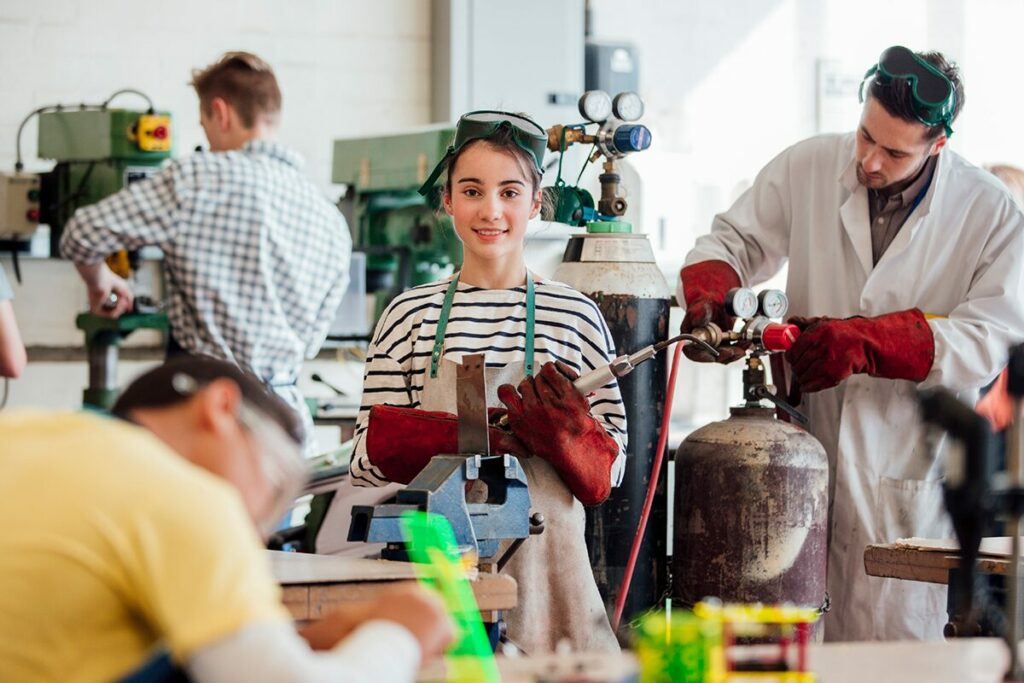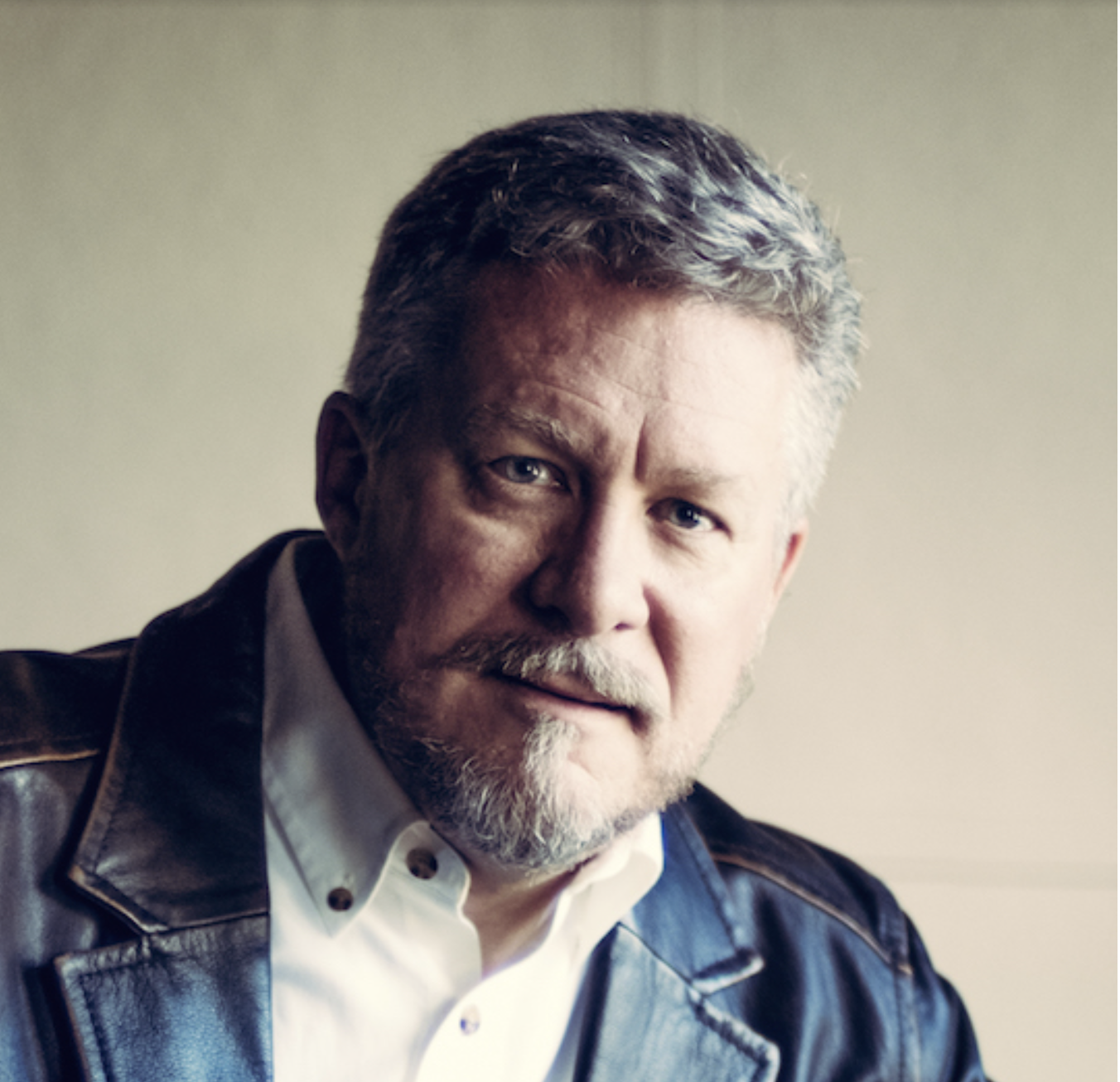We need to recognize people, both young and older, as individuals with unique skills and respond accordingly. Just as with an authentic project-learning experience, there’s no degree for what skilled and passionate individuals have to offer.
Dr. Tim Kubik, Founder of Project ARC
After two years of COVID-19, we know that learning can happen anywhere and anytime. Over the last two years, learners and educators are “working-to-learn” without direct instruction or training.
The concept of “working-to-learn” was introduced by Stanford’s Institute for the Future and d.School several years ago and argues that brain science and the rising costs of higher education compel us to consider the ways young people actually learn by working through real-world career pathways and problems prior to finding their career. It makes sense in theory, but it became a reality for both young and adult learners during COVID. The problem is there’s no degree for THAT!
Generally, educational institutions only give degrees for what is learned by transmission: the teacher teaches, and the learners demonstrate what they learned by repeating the information or the task. While some of that transmission-based learning time was indeed lost during the pandemic, working-to-learn also happened. What might that mean for educational institutions, whether K-12 or higher education?
At the Crossing the Cactus Conference in Santa Fe earlier this year, Project ARC convened a short workshop with the help of Sarah Boisvert from New Collar Network. Both organizations are focused on authentic project-learning experiences as sources of learning — the kind of learning that all too often escapes institutional attention because it has yet to be standardized into a credential, let alone a degree. While much of the conference focused on transmitting new ideas or winning strategies, our two organizations tried something different with our session as a way of building real, authentic learning opportunities that mirrored our message — but, more on that in a bit.
Crossing the Cactus is a summit that attracted educators, entrepreneurs, workforce and human resource professionals, and venture capitalists. The idea of “crossing the cactus” is from a combination of “two metaphors for growth: the resilient desert cactus and ‘crossing the chasm’” — or going from an early market to a more mainstream one with a new product or technology. As the CTC website shares, “the future must harness…resilience and innovation to create jobs and flourishing economic ecosystems.”
During the event, attendees were exposed to two popular alternatives to degrees.
Work-based learning
Many employers, educational institutions, and state governments are collaborating to give credit for work-based learning. Whether in internships, apprenticeships, or actual employment situations, learners engage in work intended to generate the on-the-job experiences employers seek. Work-based learning is recognized, by either a degree-granting institution or a workplace, as the equivalent to a certain number of academic credits at the high school or college level.
There is much that is attractive here, but also many challenges. Determining precisely what credits are earned can be difficult when comparing experiences and aligning them with traditional curricula. This can consume many hours of work for both those who provide the experience and the accrediting organizations.
Micro-Credentialing
Considering the challenges in accrediting work-based learning, many companies and educational institutions have entered the market offering micro-credentialing courses for workplace skills. Skills are identified and then operationalized into a curriculum, allowing learners to take short courses to earn a credential that is recognized as valid across institutions.
While labor-intensive on the front-end regarding operationalizing the skills, there is demand for “upskilling” the labor force that makes for a reasonable return on investment for the companies doing the work. However, the number of companies and institutions engaged in the work raises important questions for those seeking credentials. Are micro-credentials earned from one entity the same as those earned from another? Must learners commit to a single entity for all of their credentials? Given competition in the market, there is little incentive to work with state governments to arrive at a common core of micro-credentials. The result is that learners seeking these credentials are engaged in a certain amount of market risk compared to traditional academic degrees, especially when most employer resume-screening processes are still very degree-focused.
Rather than ensuring that everyone is prepared equally, it may be more equitable to recognize the aspects of successful learning that cannot be captured with a degree or credential.
Dr. Tim Kubik, Founder of Project ARC
Both approaches promise workforce-age learners options beyond a degree despite these start-up challenges. They also open new pathways for K-12 educators and counselors looking to help their learners adapt to the complex learning ecosystem now available to adults.
Yet, just as with the K-12 learning ecosystem, when content and skills are standardized into a curriculum or even a micro-course, they risk detaching learning from the authentic application necessary to demonstrate career or college readiness. In both cases, more often than not, completion is all that is necessary for accreditation, even if all that is assessed is low-level understanding of the content or skills.
Authenticity and Relevancy
This is the challenge we are seeking to address with Project ARC — creating authentic project-based learning experiences that set a strong context for K-12 and higher education learners to adapt to work-based learning.
During authentic project-learning experiences, learners work on open-ended challenges with technical experts from the surrounding community in a way that does not always identify the outcomes in advance. If the school community asks a question such as, “How might we design and build an affordable pool for our school?” even the experts may not know the answer in advance. Consultants who have built affordable school pools might be brought into the process as technical experts, but there is no guarantee that what they have built before will be relevant in this case. Transmission of existing knowledge becomes but one possible pathway to learning. Learner-driven innovations may yield alternative pathways, including potential innovations in both content and skills.
Employers constantly remind educators that they are looking for candidates who can engage in application and innovation because these are difficult to operationalize and teach in a one- or two-day training seminar. After more than two decades of teaching content and skills-based standards at work, at least one panel convened by Deloitte Consulting drew similar conclusions about education.
We need to recognize people, both young and older, as individuals with unique skills and respond accordingly. Just as with an authentic project-learning experience, there’s no degree for what skilled and passionate individuals have to offer.
Crossing the Cactus
There are prickly issues here, and our attempts to resolve them as educators can either hurt job-seekers who lack transferable credentials or employers who find a lack of independent, innovative workers in the workforce. The theme of the Crossing the Cactus conference was the prickly challenge many face in taking new learning to market or in establishing whole new markets worthy of investment.
In both the workplace and formal education, authentic project-learning experiences address this challenge by offering actionable ideas in concrete proposals or unique skills that employers will recognize in individual candidates.
To return to our workshop experiment with New Collar Network, participants welcomed the chance to explore such challenges together, rather than hear stories of how others had “crossed the cactus.”
Two small teams of about seven members tackled the venue’s space issues. In the debrief that followed this design sprint, participants shared that they’d found the process of elimination to be a helpful strategy and reflected on the sense of shared optimism that arose when a solution was identified. The first was a tangible problem-solving process that they could share as a newly learned skill, even if it does not result in a micro-credential. The second comes from paying attention to social-emotional learning in a collaborative project. This isn’t the same as a credential, but it does empower the learner with unique perspectives to share upon entering the workforce.
Perhaps most intriguing regarding both outcomes was Boisvert’s comment that Silicon Valley start-ups have been successful partly because they are so good at recognizing these unique outcomes as innovations that are distinct from the transmission of existing content or skills.
As educators, we’re a long way from standardizing authentic project-learning experiences to the point that they can be used to grade student work or form the basis of workplace performance criteria in our current system. Many states have worked toward common assessments meant to do the same thing as micro-credentialing. But, perhaps that’s not a problem we need to solve.
Indeed, during a conversation with Education Reimagined’s President Kelly Young at a reception after the conference, we agreed that the institutional need for standardization and transferability hindered significant changes in our education systems. Rather than ensuring that everyone is prepared equally, it may be more equitable to recognize the aspects of successful learning that cannot be captured with a degree or credential. Project ARC, New Collar Network, and Education Reimagined see an emerging market here. After everything we heard at Crossing the Cactus, these unique outcomes are often the very thing that reveals the pathway to crossing the cactus.
Whether you are an educator or work in the private sector, we’d love to hear your thoughts, intuitions, or methods for crossing the cactus when there’s no degree for THAT — whatever THAT is. Perhaps, together we’ll empower a generation of working learners equipped with the unique outcomes and skills employers say they so desperately need.

